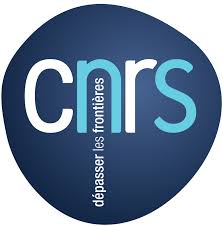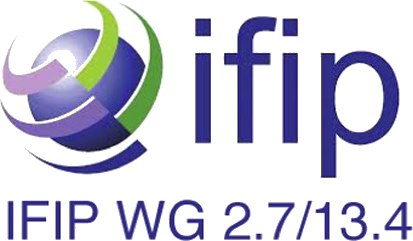Accepted Workshops
Engineering Interactive Computing Systems for People with Disabilities
Web site: http://www.uphf.fr/disab2022
Organizers:
- Prof Kathia M Oliveira LAMIH UMR CNRS 8201, Université Polytechnique Hauts-de-France, UPHF, Valenciennes, France
- Peter Forbrig Chair in Software Engineering, University of Rostock, Rostock, Germany
- Isabelle Pecci LCOMS, Université de Lorraine, Metz, France
Abstract: The advances in the area of interactive systems are unquestionable. New multi-modal, multi-user, multi-device/screen interaction and interaction techniques, new development methods and processes to improve the development of interactive systems, and so on, have been widely proposed by the community. Using these approaches in the development of interactive systems for people with disabilities can be challenging and requires adapting, customizing, evolving and even defining new approaches. This is even more evident when advocating user-centered design. This workshop aims to present and discuss the design, development, implementation, verification and validation of interactive systems for users with disabilities, whether permanent (visual, hearing, mobility impairments, ...), evolutive (in the case of degenerative diseases such as Alzheimer and Parkinson) or temporary (situationally impaired people).
Methods, Tools and Techniques for Trustworthy Autonomous Systems (TAS) Design and Development
Organizers:
- Mohammad Naiseh University of Southampton, Southampton, United Kingdom, m.naiseh@soton.ac.uk
- Dr Caitlin Bentley The University of Sheffield, Sheffield, United Kingdom, c.m.bentley@sheffield.ac.uk
- Sarvapali Ramchurn University of Southampton, Southampton, United Kingdom, sdr1@soton.ac.uk
- Elizabeth Williams 3A Institute, Australian National University, Canberra, Australia
- Dr Edmond Awad Economics, University of Exeter Business School, Exeter, Devon, United Kingdom
- M. Christophe Alix Thales, Paris, France, christophe.alix@thalesgroup.com
Abstract: This workshop focuses on methods, tools and techniques to design and develop Trustworthy Autonomous Systems (TAS). TAS is an emerging area of interactive systems that is expanding the scope and remit of engineering. At every scale, making autonomous systems trustworthy is a collective task that requires a multidisciplinary team to work together to understand trust design requirements and provide effective and creative solutions. TAS introduce unique challenges in the design and development of interactive systems because they may have the capacity to learn and evolve, they may need to make decisions or take actions independently with little or no human oversight, and they will be deployed in very different cultural and regulatory environments. TAS engineers need robust design methods, tools and techniques to meet diverse TAS requirements and objectives. Our prior research argued for TAS engineers to develop skills in three core areas: soft, strategic and technical [1]. However, little has been done to flesh out the specific methods, tools and techniques that TAS engineers should draw on. This workshop intends to invite interactive systems experts to contribute promising design methods, tools and techniques – particularly in the area of user/actor and design requirements modelling. The workshop aims to present cutting-edge modelling techniques, and to test these approaches through discussion, to think about main challenges, refine TAS required skills and steer the overarching strategy in this new field for the future.
(cancelled) Rethinking Smart Objects: The International Workshop on Interacting with Smart Objects
Web site: https://smart-objects.org/
Organizers:
- Martin Schmitz, Saarland University, Saarland Informatics Campus, Germany.
- Sebastian Günther Telecooperation Lab, Technical University of Darmstadt, Darmstadt, Germany, guenther@tk.tu-darmstadt.de
- Karola Marky University of Glasgow, Glasgow, Germany, karola.marky@glasgow.ac.uk
- Florian Müller LMU Munich, Munich, Germany, florian.mueller@um.ifi.lmu.de
- Andrii Matviienko Technical University of Darmstadt, Darmstadt, Germany
- Alexandra Voit adesso AG, Dortmund, Deutschland, Germany
- Roberts Marky Black Arrow Financial Solutions Ltd., Glasgow, United Kingdom
- Max Mühlhäuser Telecooperation Lab, TU Darmstadt, Darmstadt, Germany
- Thomas Kosch Utrecht University, Utrecht, Netherlands
Abstract: The increasing proliferation of smart objects into everyday life has changed how we interact with computers. Instead of concentrating computational capabilities and interaction into one device, everyday objects have naturally integrated parts of interactive features. Although this has led to many practical applications, the possibilities for explicit or implicit interaction with such objects are still limited. We still rely on smartphones as interactive hubs for controlling smart objects, hence not fulfilling the vision of truly smart objects. The workshop Rethinking Smart Objects invites practitioners and researchers from both academia and industry to discuss novel interaction paradigms and the integration and societal implications of using smart objects. This workshop will include an action plan with leading questions, aiming to move the research field forward.
(cancelled) HCI-E^2 2022: Second IFIP WG 2.7/13.4 Workshop on HCI Engineering Education
Web site : http://ui-engineering.org/activities/hci-e2-2022/
Organizers:
- José Creissac Campos Departamento de Informática, Universidade do Minho, Braga, Portugal HASLab/INESC TEC, Braga, Portugal
- Laurence Nigay Equipe IIHM du Laboratoire d'Informatique de Grenoble, Université Grenoble Alpes, Grenoble, France
- Professor Alan Dix Computational Foundry, Swansea University, Swansea, Wales, United Kingdom
- Anke Dittmar Department of Computer Science, University of Rostock, Rostock, Germany
- Simone D J Barbosa Department of Informatics, PUC-Rio, Rio de Janeiro, RJ, Brazil
Abstract: This second workshop on HCI Engineering Education aims at carrying forward work on identifying, examining, structuring, and sharing educational resources and approaches to support the process of teaching/learning Human-Computer Interaction (HCI) Engineering. The widening range of available interaction technologies and their applications in increasingly varied contexts (private or professional) underlines the importance of teaching HCI Engineering but also the difficulty of taking into account changes and developments in this field in often static university curricula. Besides, as these technologies are taught in diverse curricula (ranging from Human Factors and Psychology to hardcore Computer Science), we are interested in what the best approaches and best practices are to integrate HCI Engineering topics in the curricula of programs in Software Engineering, Computer Science, Human-computer Interaction, Psychology, Design, etc. The workshop is proposed on behalf of the IFIP Working Group 2.7/13.4 on User Interface Engineering.
Call for Workshop Proposals (Closed)
The Workshops Track of EICS offers the opportunity to organize specialized forums alongside the main conference and attract the attention of participants to emerging and trendy topics of research related to the engineering of interactive computing systems.
In addition to traditional workshops with paper presentations, we welcome innovative workshop formats including design and experience workshops (where participants design and/or evaluate artifacts), interactive sessions based on collaborative work, etc. Workshops durations can be suggested by the organizers (half-day or full-day).
EICS 2022 focuses on models, languages, notations, methods, techniques and tools that support designing and developing interactive systems. The Conference brings together people who study or practice the engineering of interactive systems, drawing from HCI, Software Engineering, Requirements Engineering, Conceptual Modelling, CSCW, Ubiquitous / Pervasive Systems
Workshop proposals should be no longer than 5 pages (new ACM Master template, use the manuscript option) and must include a description of:
- Background: The workshop aims and goals
- The target audience
- Organizers: The organizers’ short bio, including the main contact person
- Pre-Workshop Plans: State your plans for recruiting and community-building (e.g. through a website or other communication with participants).
- Workshop Structure: Explain in detail the workshop structure & format, including activities, timing, and resources. Address how to run the workshop online and how to keep the audience engaged during the envisioned duration of your workshop.
- Any operational requirements
- The advertising plan, including details of the planned website
- Post-Workshop Plans: The workshop output
dissemination plan (e.g., publication of proceedings, organization
of journal special issue, video report, blog, etc.). We suggest
organizers to consider submitting the outcome of their workshops
for publication to Springer HCIS (https://www.springer.com/
series/6033 ), either as a full volume or or as a brief. Other means like CEUR workshop proceedings, Open Science Framework (OSF - www.osf.io), etc. are also suitable venues.
Workshop organizers will get the opportunity to present the work they cover and the results of their workshop as posters at the main EICS 2021 conference to maximize their impact (meaning workshop participants have the possibility to create a poster and present it as part of the main conference). Notice that workshop proposals are juried. Criteria selection include the relevance of the workshop topics and goals, scientific background and experience of the workshop’s organizers in organizing events, advertising and dissemination plan.
Examples of workshops run at previous EICS can be found at:
Registration Policy
- To participate in a workshop, attendees need to register for the main conference.
- Workshops with 5 or less attendees will be canceled.
- The organization offers one free registration to the workshops day for one workshop organizer every group of 8 attendees registered.
- The organization offers one free registration for the workshops day + the main conference to one workshop organizer every group of 12 attendees registered.
Submission Information
Proposals for organizing workshops should follow the TAPS process and the single column template that is provided here (Section 2). Please, don't use the old double-column format but the new one-column format.
Proposals for organizing workshops should not be annonymized.
Submissions can be done through (SIGCHI | EICS 2022)
http://new.precisionconference.com
Important dates (EXTENDED)
11/02/2022 - Submission of workshop proposals
25/02/2022 - Notification of accepted workshops
07/03/2022 - Camera-ready for workshop description
15/04/2022 - Latest deadline for workshop papers
22/04/2022 - Notification of accepted workshop papers
29/04/2022 - Camera-ready deadline for workshop papers
21/06/2022 - Workshop day

 EICS 2022
EICS 2022




